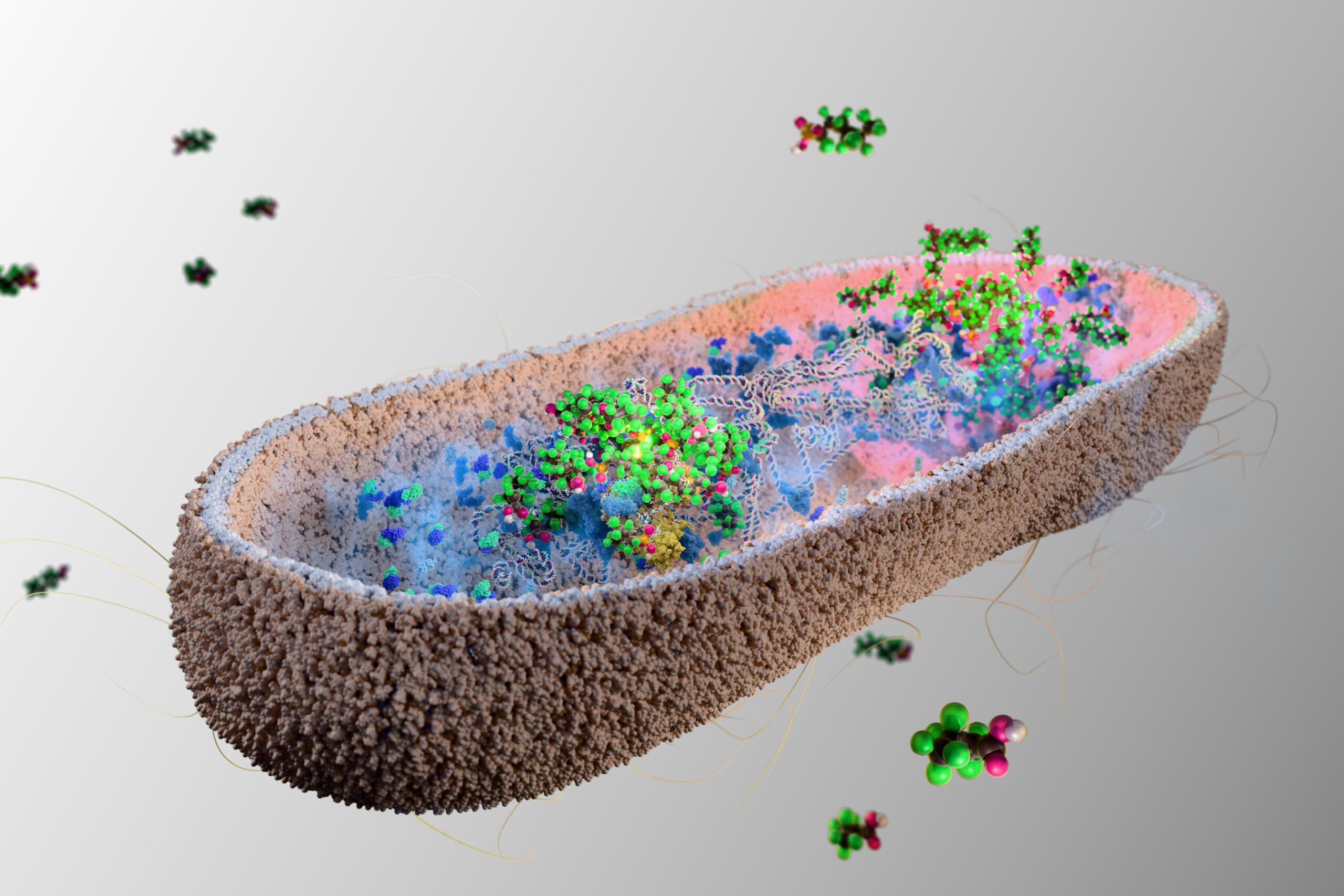
The Growing Concern of Forever Chemicals
In recent years, environmental pollution has escalated to alarming levels, primarily due to the widespread use of industrial chemicals. Among the most concerning are “forever chemicals,” scientifically known as per- and polyfluoroalkyl substances (PFAS). Revered for their water- and stain-resistant properties, PFAS are used extensively in consumer products, firefighting foams, and industrial applications. However, their persistent nature means they do not easily degrade in the environment or human bodies, leading to potential health risks such as hormonal disruptions, immune system impairments, and increased cancer risk.
Traditional methods to eliminate PFAS from the environment and human systems include filtration, chemical treatments, and removal through expensive and invasive procedures. Yet, scientists are now exploring innovative, biological solutions—specifically, leveraging our body’s own gut microbes—to naturally detoxify and remove these stubborn chemicals. This emerging field could signal a revolutionary shift in how we combat chemical pollution inside our own bodies.
Understanding Gut Microbes and Their Role in Human Health
The Microbiome: Our Inner Ecosystem
The human gut hosts trillions of microbes, collectively known as the gut microbiome. These microorganisms, including bacteria, fungi, viruses, and protozoa, are essential for maintaining various physiological functions. They assist in digestion, synthesize vital nutrients, support immune health, and even influence mental well-being.
Research over the past decade has expanded our understanding of the microbiome’s versatility, revealing that these microbes can also metabolize a wide array of substances, including some environmental toxins. Their metabolic activities are not only crucial for health but may also present unique opportunities for bioremediation—using living organisms to detoxify polluted environments or systems.
Gut Microbes and the Detoxification of Forever Chemicals
Breaking Down Persistent Chemicals Naturally
The intriguing possibility that gut microbes could help eliminate PFAS revolves around their ability to degrade complex and resistant chemical compounds. Recent scientific studies have suggested that certain bacteria within our gastrointestinal tract may possess enzymes capable of breaking down or modifying PFAS molecules, rendering them less harmful or easier to excrete.
This discovery opens up promising avenues for detoxifying these substances directly within the human body, potentially reducing the long-term health impacts of exposure. Rather than relying solely on external filtration or chemical treatments, harnessing our natural microbial allies could become a biological defense mechanism against environmental contaminants.
Research Insights and Emerging Evidence
Key Findings from Recent Studies
- Gut Microbial Diversity and PFAS Levels: Studies have shown that individuals with a more diverse gut microbiome tend to have lower PFAS concentrations, hinting that certain microbial communities may effectively process these chemicals.
- Microbial Enzymes Targeting PFAS: Researchers have identified specific microbial enzymes that can modify fluorinated compounds, the core component of PFAS. While still in the early stages, these findings pave the way for developing probiotic or microbiome-targeted therapies.
- Biodegradation Pathways: Experimental models demonstrate that some gut bacteria can metabolize PFAS precursors or breakdown products, facilitating their elimination from the body.
Although the research is ongoing, these breakthroughs suggest that our microbiota may naturally mitigate PFAS accumulation, highlighting an exciting intersection of microbiology and environmental health.
Potential Applications and Future Directions
Developing Microbiome-Based Therapies
Given the promising evidence, scientists are exploring ways to enhance the gut microbiome’s ability to detoxify PFAS. Some potential approaches include:
- Probiotic Supplements: Formulating probiotics containing strains known to metabolize or bind PFAS, helping facilitate excretion.
- Prebiotics and Diet Modifications: Designing diets that promote the growth of beneficial microbes involved in chemical breakdown.
- Fecal Microbiota Transplantation (FMT): Transferring healthy microbiota to rebuild or enhance detoxifying microbial populations in individuals with high PFAS levels.
Challenges and Considerations
While the prospects are exciting, there are hurdles to overcome:
- Identifying and Isolating Effective Microbes: Not all gut bacteria can degrade PFAS; pinpointing and cultivating the right strains is complex.
- Ensuring Safety: Introducing or enhancing specific microbes must be carefully regulated to prevent unintended health effects.
- Understanding Long-term Effects: More research is needed to determine the sustainability and efficacy of microbiome-based detoxification over time.
Nonetheless, ongoing research and technological advancements hold promise for future therapies that could harness the power of gut microbes to eliminate ‘forever chemicals’ naturally.
Environmental and Public Health Implications
Beyond Individual Detoxification
The potential for gut microbes to process PFAS also raises questions about broader environmental and public health strategies. If the microbiome can be leveraged for detoxification, it could inform:
- Development of microbial consortia for bioremediation in contaminated sites
- New guidelines for managing chemical exposure and detoxification in communities at risk
- Innovative solutions for reducing chemical persistence in ecosystems through biological means
This biotechnological approach aligns with the movement towards more sustainable and natural methods of managing pollution, reducing our reliance on chemically intensive cleanup processes.
Conclusion: A New Frontier in Combating Chemical Pollution
The discovery that our gut microbes may help in flushing out ‘forever chemicals’ marks an exciting advance in the battle against persistent environmental toxins. As research progresses, we can anticipate innovative health interventions that utilize the natural capabilities of our microbiota to safeguard human health. The convergence of microbiology, environmental science, and medicine promises to unlock effective, eco-friendly solutions for detoxification—paving the way towards a healthier future.
In sum, the power of our gut microbes might soon be harnessed not just for digestion and immune health, but also as a natural defense mechanism against some of the most stubborn pollutants facing our world today.
For more updated news please keep visiting Prime News World.








